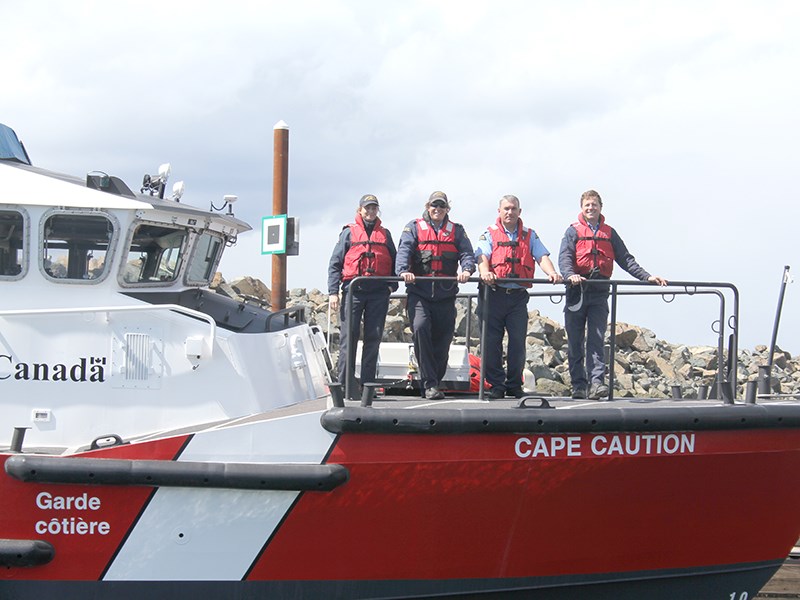More than 10 incidents of seriously compromised marine communications have been documented since the Canadian Coast Guard station in Comox closed in May, according to a letter sent from Powell River Regional District (PRRD) to the federal government and a transportation union.
Comox-based Marine Communications and Traffic Services (MCTS) centre shut down on May 10 as part of a planned closure by the federal government. With the closure, responsibility for monitoring marine radio communications for distress calls and guiding ships moved to a centralized station in Victoria.
According to the PRRD’s letter, sent to federal transportation minister Marc Garneau, the Standing Committee on Fisheries and Oceans (SCFO) and Union of Canadian Transportation Employees, in approximately half of the documented incidents from May 10 to July 17, the Victoria station did not even respond.
In the other half, Victoria responded between four and six minutes later or the transmission was compromised by static or was garbled. According to the letter, the situation puts mariners at serious risk.
“Powell River Regional District wishes to express grave concern regarding the closure of Comox Coast Guard station,” stated PRRD board chair Patrick Brabazon in the letter.
Local stations, such as the one in Powell River, are now connected by officers with pagers, waiting to respond to calls from Victoria, according to the letter.
“They are not monitoring distress calls,” stated Brabazon. “Any problems with the Victoria radio system may result in local personnel being the last people to hear about serious distress issues in the area.”
Brabazon told the Peak that while a mariner can ask a station from the other side of the world for help, “it’s not quite the same as talking to someone
who knows the area.”
“We know they can’t be everywhere, but there were not that many stations up and down the coast,” said Brabazon. “To shut one down didn’t make much sense to us.”
Brabazon’s letter concludes that Victoria station’s radio signal is not adequate for 24-hour coverage and is ineffective in the northern waters of the Strait of Georgia.
It also states that more calls might not be responded to, other vessels in the area may be the first line of help for vessels in distress and foreign ships in the region will be put at a serious disadvantage if they presume marine distress channels are “efficient and fully effective.”
Critics of the closure, including North Island-Powell River MP Rachel Blaney, had hoped a SCFO review last spring would reverse the decision put forward by the previous federal government, but instead the committee found the closure would not have an impact on emergency marine response on the coast.
Former fisheries and oceans minister Hunter Tootoo said last spring that he was “pleased the standing committee had recognized that marine safety remains a top priority, even with the consolidation of Comox.”
Surrey MP Ken Hardie, a SCFO member, said the closure of Comox and the problems with radio communications are two separate issues. Marine radio problems on the coast predate the closure.
“The radio system has been problematic ever since it was rolled out,” said Hardie. “It’s difficult to get a cause-and-effect relationship between the radio system troubles and the fact that Comox isn’t open anymore.”
Hardie said that he is glad the regional district is raising the issue though, because “it keeps the whole matter live.”
While the coast guard has reported to the committee that it has confidence in the radio system, Hardie said he has been told it does not always function well. He added that the committee still has concerns about the coast guard’s lack of communications redundancy.
During the debate on whether Comox should remain open, critics of the closure argued that Comox was the only communications hub on the BC coast that would not be affected by tsunamis.
Earlier this year, Fisheries and Oceans Canada promised the committee that it would provide quarterly performance reports on the communications system, but Hardie said the committee has yet to receive them.
Communications stations at Tofino and Vancouver also closed as part of the 2012 plan.



